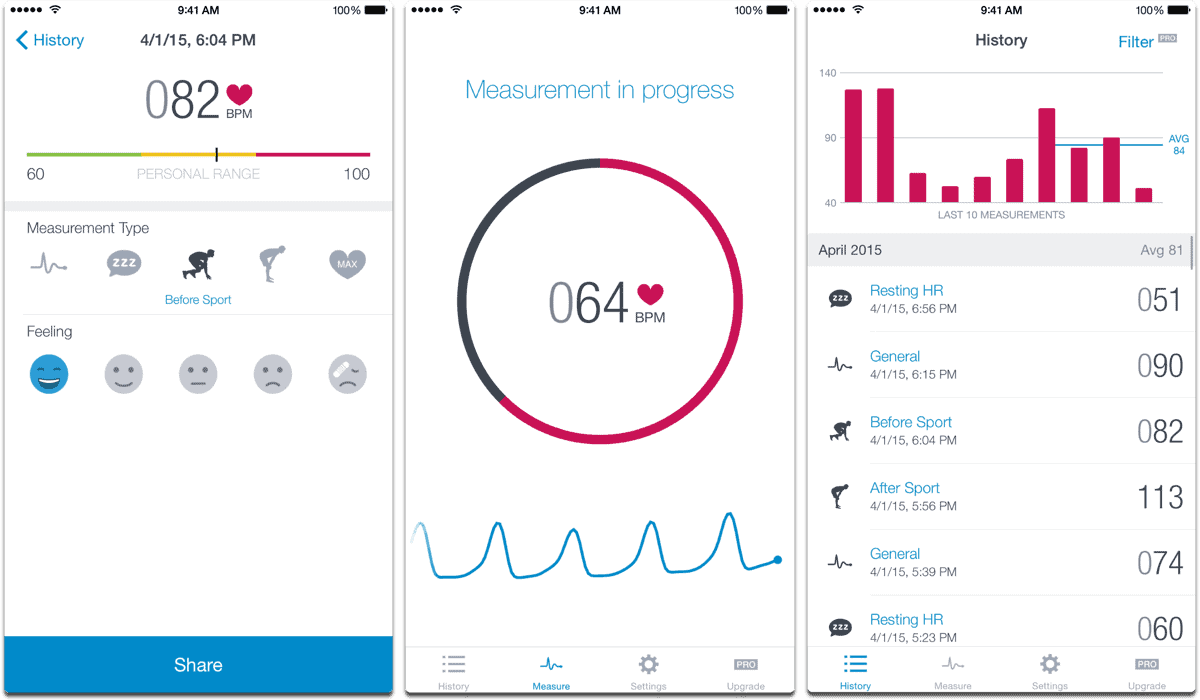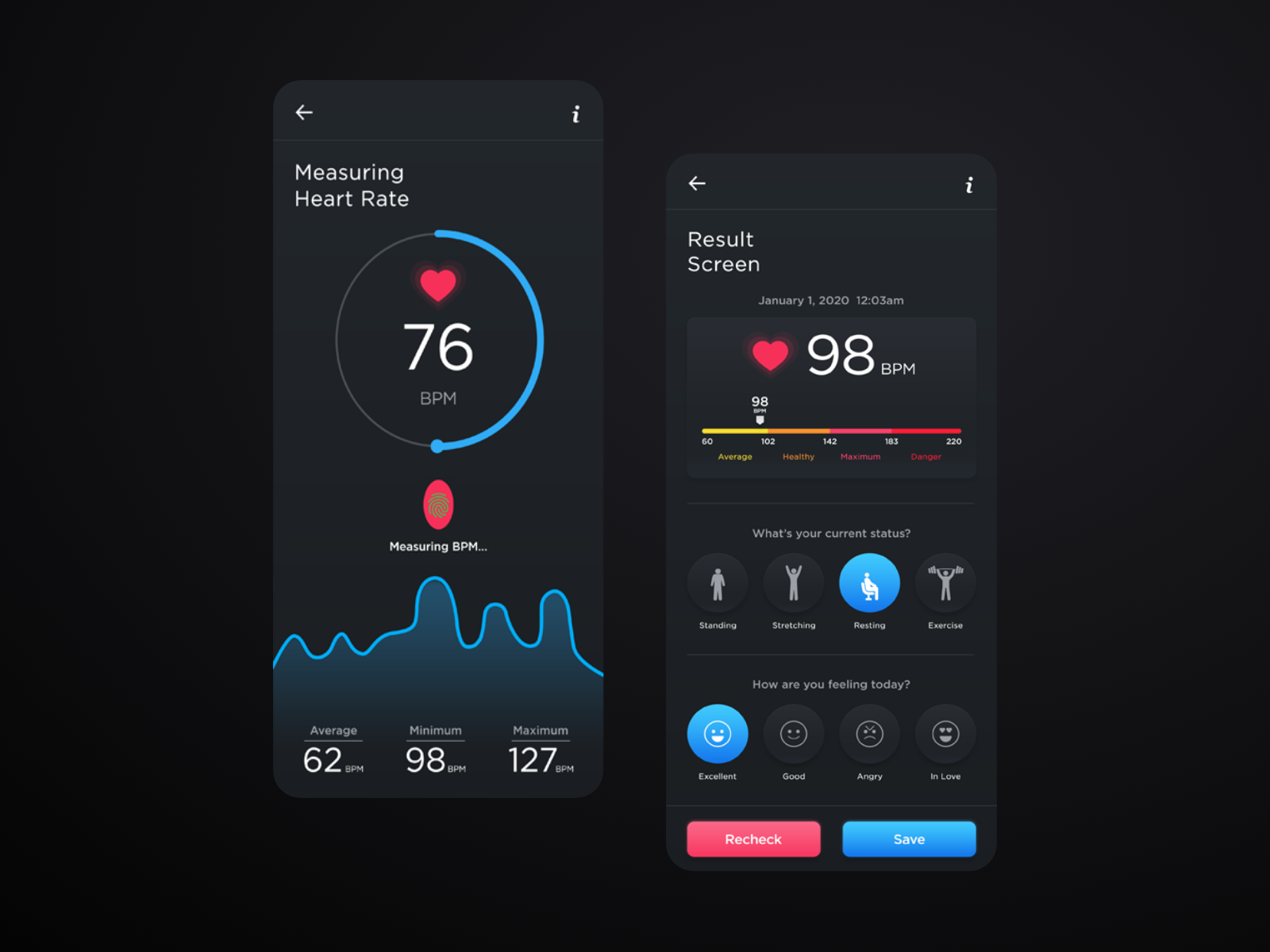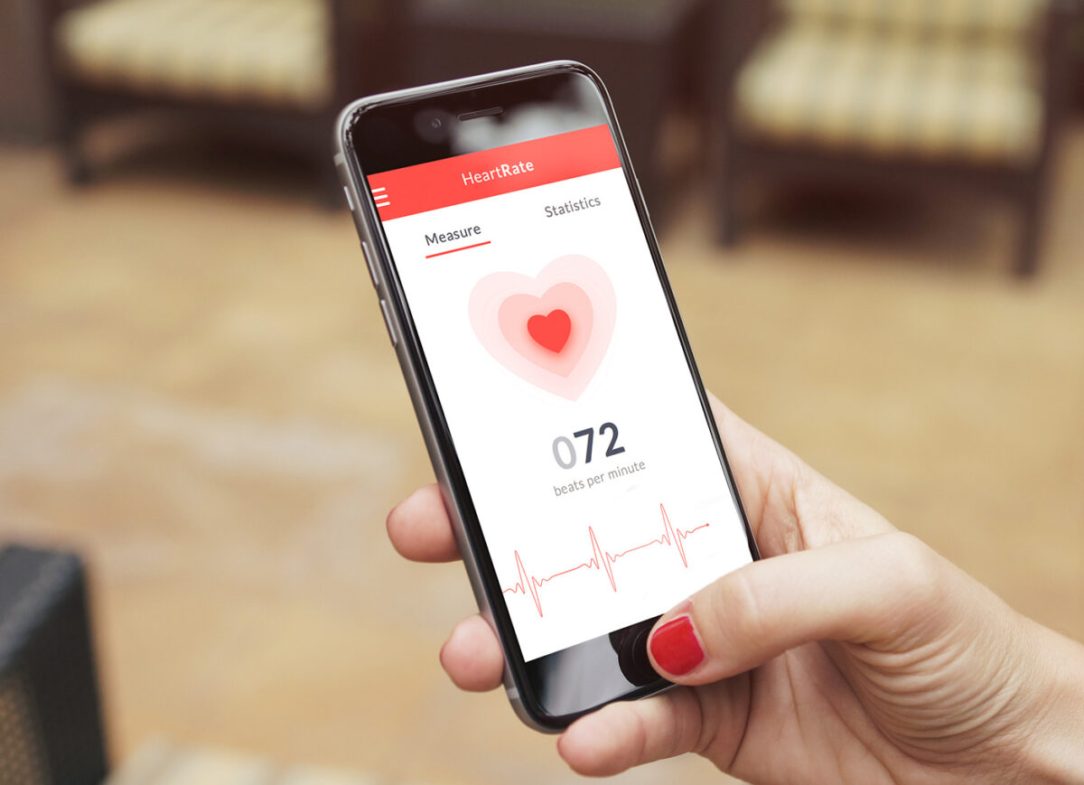With Heart Rate Monitor apps, we’re unlocking the secrets of our hearts. From tracking your every beat to optimizing your fitness, these apps are transforming the way we monitor our health and well-being.
Whether you’re a seasoned athlete or just starting your fitness journey, Heart Rate Monitor apps empower you with unprecedented insights into your cardiovascular health.
Overview of Heart Rate Monitor Apps

Heart rate monitor apps are mobile applications that measure your heart rate using your smartphone’s camera or built-in sensors. They are designed to provide an accurate and convenient way to track your heart rate during exercise, rest, or other activities.
Heart rate monitor apps work by using a variety of techniques to measure your heart rate. Some apps use the camera on your smartphone to measure the changes in blood flow in your fingertip. Other apps use the built-in sensors in your smartphone to measure the electrical activity of your heart.
Types of Heart Rate Monitor Apps
There are many different types of heart rate monitor apps available, each with its own unique features and capabilities. Some of the most popular types of heart rate monitor apps include:
- Fitness tracking apps:These apps are designed to track your overall fitness, including your heart rate, steps taken, and calories burned.
- Heart rate variability apps:These apps measure the variability in your heart rate, which can be an indicator of your overall health and fitness.
li> Medical apps:These apps are designed to be used by healthcare professionals to monitor the heart rate of patients with heart conditions.
Benefits of Using Heart Rate Monitor Apps
Heart rate monitor apps offer a range of benefits for individuals seeking to track and improve their cardiovascular health. These apps allow users to monitor their heart rate in real-time, identify patterns and trends, and detect potential abnormalities. By leveraging this data, users can make informed decisions about their exercise routines, lifestyle choices, and overall well-being.
Track and Monitor Heart Rate
Heart rate monitor apps provide a convenient and accessible way to track heart rate throughout the day. This information can be valuable for understanding how the heart responds to different activities, such as exercise, sleep, and stress. By monitoring heart rate over time, users can identify patterns and trends that may indicate underlying health issues or areas for improvement.
Identify Heart Rate Patterns and Trends
Heart rate monitor apps can help users identify patterns and trends in their heart rate data. By analyzing this data over time, users can gain insights into their overall cardiovascular health. For example, they may notice that their heart rate is consistently elevated during certain times of the day or that it decreases significantly during sleep.
These patterns can provide valuable information for making informed decisions about lifestyle choices and exercise routines.
Detect Heart Rate Abnormalities, Heart rate monitor apps
Heart rate monitor apps can also be used to detect heart rate abnormalities, such as arrhythmias or bradycardia. By monitoring heart rate continuously, these apps can alert users to potential problems that may require medical attention. Early detection of heart rate abnormalities can be crucial for timely intervention and treatment.
Improve Cardiovascular Health
By providing real-time heart rate data, heart rate monitor apps can help users improve their cardiovascular health. This information can be used to optimize exercise routines, manage stress levels, and make informed lifestyle choices. By understanding how their heart responds to different activities, users can tailor their workouts to achieve their fitness goals while minimizing the risk of overexertion.
Enhance Fitness and Exercise Performance
Heart rate monitor apps can also enhance fitness and exercise performance. By tracking heart rate during workouts, users can ensure they are exercising at an optimal intensity for their fitness level. This information can help improve endurance, speed, and overall performance.
Additionally, heart rate monitor apps can provide motivation and accountability by tracking progress and providing feedback on workout intensity.
Features of Heart Rate Monitor Apps
Heart rate monitor apps provide a range of features to help you track and monitor your heart rate, fitness activities, and overall health. These features include:
- Heart rate tracking and display:These apps use sensors to measure your heart rate in real-time and display it on your smartphone or smartwatch screen.
- Heart rate zone monitoring:Many apps allow you to set heart rate zones based on your fitness goals and then track how much time you spend in each zone during your workouts.
- GPS tracking for distance and pace:Some apps use GPS to track your distance and pace during outdoor workouts, such as running or cycling.
- Calorie tracking:These apps can estimate the number of calories you burn during your workouts based on your heart rate and other factors.
- Workout tracking and analysis:Many apps allow you to track your workouts, including the type of activity, duration, and intensity. They can also provide analysis of your workouts to help you improve your fitness.
These features make heart rate monitor apps a valuable tool for anyone looking to improve their fitness and overall health.
Considerations for Choosing a Heart Rate Monitor App
Selecting the most suitable heart rate monitor app for your specific needs requires careful consideration of various factors. These factors encompass compatibility with your devices, accuracy and reliability of measurements, the range of features and functionality offered, user interface and ease of use, and cost and subscription options.
Let’s delve deeper into each of these considerations to assist you in making an informed decision:
Compatibility with Devices
- Ensure the app is compatible with your smartphone, smartwatch, or fitness tracker.
- Verify the app’s compatibility with the operating system (iOS, Android, etc.) of your devices.
- Check for Bluetooth or ANT+ connectivity support if you plan to use the app with external heart rate monitors.
Accuracy and Reliability
- Look for apps that utilize validated algorithms for accurate heart rate measurements.
- Consider apps that provide consistent and reliable readings across different activities and environments.
- Read reviews and testimonials from other users to assess the app’s accuracy and reliability.
Features and Functionality
- Identify the features that are important to you, such as heart rate zones, GPS tracking, calorie tracking, and workout summaries.
- Consider apps that offer advanced features like heart rate variability analysis, sleep tracking, and personalized training plans.
- Ensure the app integrates with other health and fitness apps you use to provide a comprehensive view of your health data.
User Interface and Ease of Use
- Choose an app with a user-friendly interface that is easy to navigate.
- Look for apps that provide clear and concise data visualizations and summaries.
- Consider apps that offer customizable dashboards and notifications to suit your preferences.
Cost and Subscription Options
- Determine if the app is free or requires a subscription.
- Compare the cost of different apps and consider the value of the features offered.
- Check if the app offers a free trial or money-back guarantee to allow you to test it before committing.
Popular Heart Rate Monitor Apps
In the realm of fitness and health monitoring, heart rate monitor apps have gained immense popularity. These apps leverage smartphone sensors or external devices to track heart rate data, providing valuable insights into cardiovascular health and exercise performance. Among the plethora of options available, a few notable apps stand out.
Apple Health
- Integrated with Apple devices and iOS Health app
- Tracks heart rate through Apple Watch or third-party devices
- Provides heart rate zones, resting heart rate, and historical data
Google Fit
- Works seamlessly with Android devices and Google Fit platform
- Utilizes smartphone sensors or compatible devices for heart rate monitoring
- Offers heart rate tracking during workouts and daily activities
Fitbit
- Renowned fitness tracker company with a dedicated heart rate monitor app
- Compatible with Fitbit devices and other Bluetooth-enabled trackers
- Provides continuous heart rate monitoring, sleep tracking, and personalized insights
Strava
- Popular app for cyclists and runners, offering advanced heart rate tracking features
- Tracks heart rate zones, training intensity, and performance metrics
- Provides social sharing and community engagement options
Runkeeper
- Specialized app for runners, offering GPS tracking and heart rate monitoring
- Tracks pace, distance, and elevation in addition to heart rate
- Provides audio coaching, personalized training plans, and performance analysis
Tips for Using Heart Rate Monitor Apps Effectively

To make the most of your heart rate monitor app, follow these tips:
Wear the heart rate monitor correctly. The sensor should be snug against your skin, and the band should be tight enough to stay in place but not so tight that it’s uncomfortable.
Calibrate the heart rate monitor. This will ensure that the app is giving you accurate readings.
Track heart rate regularly. The more data you collect, the better you’ll be able to understand your heart rate patterns.
Analyze heart rate data. Look for trends and patterns in your heart rate data. This information can help you identify potential health problems or areas where you can improve your fitness.
Consult with a healthcare professional if needed. If you have any concerns about your heart rate, talk to your doctor.
Future Trends in Heart Rate Monitor Apps

Heart rate monitor apps are poised to evolve significantly in the coming years, offering users even more advanced features and functionality.One major trend is the increasing integration of heart rate monitor apps with wearable devices. This will allow users to track their heart rate continuously throughout the day, providing them with a more comprehensive picture of their overall heart health.Another trend is the development of advanced heart rate analysis algorithms.
These algorithms will be able to identify patterns and trends in heart rate data, providing users with personalized insights into their heart health. For example, these algorithms may be able to identify early signs of heart disease or other health conditions.Personalized heart rate recommendations are also becoming increasingly common.
These recommendations can help users optimize their exercise routines, improve their sleep habits, and manage stress.Finally, heart rate monitor apps are beginning to integrate with healthcare systems. This will allow users to share their heart rate data with their doctors, who can then use it to provide more personalized care.
Integration with Wearable Devices
The integration of heart rate monitor apps with wearable devices is one of the most significant trends in the industry. This trend is being driven by the increasing popularity of wearable devices, such as fitness trackers and smartwatches. These devices can be worn throughout the day, allowing users to track their heart rate continuously.
This provides users with a more comprehensive picture of their overall heart health.
Advanced Heart Rate Analysis
Another major trend in the heart rate monitor app industry is the development of advanced heart rate analysis algorithms. These algorithms can identify patterns and trends in heart rate data, providing users with personalized insights into their heart health. For example, these algorithms may be able to identify early signs of heart disease or other health conditions.
Personalized Heart Rate Recommendations
Personalized heart rate recommendations are also becoming increasingly common in heart rate monitor apps. These recommendations can help users optimize their exercise routines, improve their sleep habits, and manage stress. For example, an app may recommend that a user increase the intensity of their workouts or get more sleep.
Integration with Healthcare Systems
Finally, heart rate monitor apps are beginning to integrate with healthcare systems. This will allow users to share their heart rate data with their doctors, who can then use it to provide more personalized care. For example, a doctor may be able to use a patient’s heart rate data to adjust their medication dosage or recommend lifestyle changes.
Closing Notes
Heart Rate Monitor apps are more than just fitness gadgets; they’re indispensable tools for managing your heart health and maximizing your fitness potential. Embrace the power of these apps to unlock a healthier, more fulfilling life.
Top FAQs
What are the benefits of using Heart Rate Monitor apps?
Heart Rate Monitor apps offer numerous benefits, including tracking and monitoring heart rate, identifying heart rate patterns and trends, detecting heart rate abnormalities, improving cardiovascular health, and enhancing fitness and exercise performance.
How do Heart Rate Monitor apps work?
Heart Rate Monitor apps utilize various technologies, such as optical sensors, to measure heart rate. They can be worn on the wrist, chest, or finger and provide real-time data on your heart rate.
What are some popular Heart Rate Monitor apps?
Some popular Heart Rate Monitor apps include Apple Health, Google Fit, Fitbit, Strava, and Runkeeper.